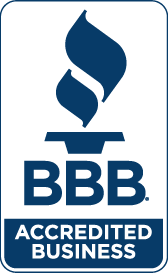Sometimes Cooperation Doesn’t Fly: Antitrust Suit filed in MA Federal Court
On September 21, 2021, the Department of Justice (DOJ) filed a civil antitrust suit against American Airlines (“American”) and JetBlue in the United States District Court for the District of Massachusetts. The suit alleges a violation of § 1 of the Sherman Act1 and seeks to enjoin an alliance formed between the two airlines.2 Back in July 2020, in the heart of the uncertainty of the COVID-19 pandemic, American and JetBlue formed the “Northeast Alliance.” According to the DOJ’s complaint, under this alliance the two rival airlines agreed to “share their revenues and coordinate which routes to fly, when to fly them, who will fly them, and what size planes to use for flights to and from four major airports.”3 These airports all come from Boston and the New York metro area, including Boston Logan, JFK, LaGuardia, and Newark Liberty.USA vs AA and Jeblue complaint MA fed
WSJ, 9-26-22: American Airlines Group Inc. AAL -3.93%▼ and JetBlue JBLU -2.68%▼ Airways Corp. will defend their partnership in a trial starting this week against government allegations that they are squelching competition in New York and Boston and harming consumers throughout the country.
The Justice Department, along with six states and the District of Columbia, filed an antitrust lawsuit last year to block a 2020 agreement between the two airlines to sell seats on one another’s flights along certain routes, pool airport slots, coordinate schedules and share revenue from flights within the scope of the partnership in the Northeast.
American and JetBlue have said that working together would make them more viable challengers at the three New York-area airports and in Boston.
The department has said the partnership is tantamount to an unlawful merger. The suit filed in Massachusetts federal court alleges the alliance will neutralize JetBlue, which previously was a “scrappy opponent” to the bigger airlines.
The suit is the latest test of the Biden administration’s pledge to be more aggressive in challenging corporate deals that it believes will suppress competition—an effort that faced a pair of notable setbacks last week after judges ruled against its attempts to block mergers in the healthcare and sugar industries.
The airline trial marks a rare courtroom showdown between the Justice Department and an industry it believes has seen too much consolidation over the years. And the suit comes as the industry is poised for more: JetBlue struck a $3.8 billion deal in July to buy Spirit Airlines Inc., a budget rival, to create the fifth-largest U.S. carrier.
“AA and JetBlue should not be permitted to extinguish the competition that, for more than twenty years, has lowered fares, increased choice, and improved service for millions of passengers,” Justice Department lawyers wrote in a brief filed this month.
American and JetBlue have argued their Northeast Alliance is distinctly different from a merger. A year and a half into their partnership, the airlines say the fare increases and reductions in output predicted by the government haven’t materialized. Rather than reduce competition, the carriers argue the partnership allowed them to expand and become a more formidable challenger to Delta Air Lines Inc. and United Airlines Holdings Inc.
“The effects of the NEA are real, observable and overwhelmingly positive,” said Daniel Wall, a lawyer at Latham & Watkins who represents American. “And yet DOJ wants to outlaw it based on academic theorizing and a blatant mischaracterization of the NEA as a merger.”
Chief executives at American and JetBlue are expected to testify, along with executives at some of their competitors.
The trial comes as Biden-era antitrust officials are looking to notch a win in a litigated-merger case. The current crop of Justice Department enforcers is aiming to challenge more deals in court and build new legal precedents rather than accept a large number of settlements in which companies offer asset sales and other concessions to secure government clearance.
Last week a federal judge in Washington, D.C., ruled the department failed to prove its case challenging UnitedHealth Group Inc.’s $13 billion acquisition of health-technology firm Change Healthcare Inc. And a federal judge in Delaware said the department hadn’t shown that a merger between U.S. Sugar and rival Imperial Sugar was anticompetitive.





